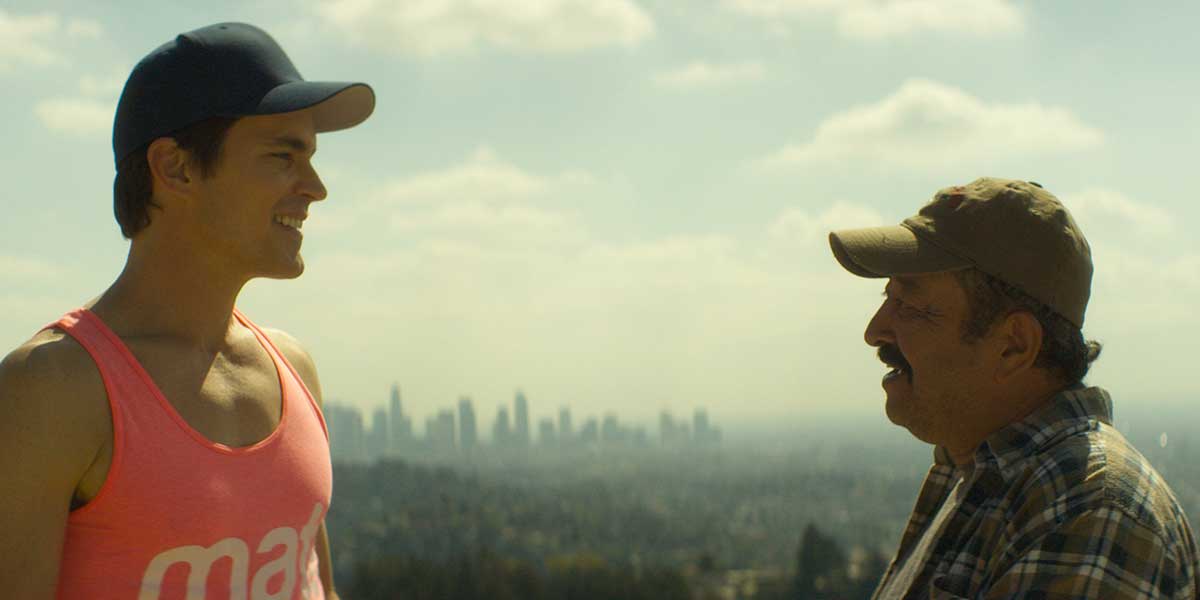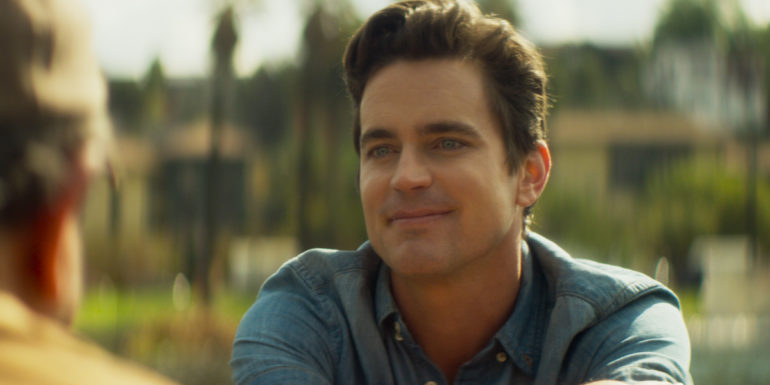Picture the scene: it’ll be easy to do, because we’ve seen it many times before. Hunky, handsome Sean (Matt Bomer) hires overweight older Ernesto (Alejandro Patiño) to perform some manual labour around his house. Despite a language barrier and having precisely nothing in common, an odd bond begins to form. The set up sounds familiar to the point of being trite, but writer/director John Butler (Handsome Devil, The Stag) manages a couple of twists on the basic culture clash setup, and skilfully handles a blend of tones to create a memorable little charmer in Papi Chulo.
Papi Chulo comes armed with a few tricks up it sleeve. For one, despite its premise promising a broad comedy, it’s much more a tragicomedy. The inciting incident sees weatherman Sean have an on-air weeping fit, as the pain of the end of a now-ended relationship boils over. It takes a genuine talent to sell both the comedy and tragedy of this moment, and the script in general. Bomer, resembling the impossible offspring of Rob Lowe and Henry Cavill, is no stranger to baring himself to the crowd for entertainment, as Magic Mike fans will attest. Papi Chulo sees him flex his comedic chops once more, but the performance comes with a healthy side of angst and grief. Sean’s former boyfriend is gone, but he hounds him with phone messages and keeps his photo on his phone screensaver. Papi Chulo doesn’t shy away from the fact that Sean’s depressive behaviour is morphing into something more sinister.

Finding a paint job left unfinished by his ex, Sean recruits a bit of help from Ernesto. As with Sean, a potentially one-note role is elevated by clever scripting and a winning performance. Patiño, a veteran bit-part actor, brings a lot of empathy and curiosity to the role; though different from Sean in virtually every way, he neither judges nor supposes; Ernesto just wants to get on with his work. A noble endeavour, but when Sean starts bringing Ernesto hiking and boating while on the clock, the corpulent handyman finds himself in a bind. Kudos to Butler’s script that the film doesn’t go out of its way to make this scenario feel happy or warranted. Papi Chulo presents a credible (if heightened) portrait of denial, all the while keeping us chuckling. A rare feat, indeed. Ernesto’s calls to his wife while on these excursions offer laughs, but also reflect the oddity of the situation. The labour laws might be different in the States, but drinking beer at a party full of gay men probably goes beyond the job description for ‘casual labour’.
Butler and DoP Cathal Watters find wonder in suburban L.A.; we never see the Hollywood sign, but we do see the sun bouncing off the hills and streets. It’s a sunny town, but never bright enough to entirely dispel the clouds. As Papi Chulo goes on, and Sean’s friendship/relationship with Ernesto hits some inevitable brick walls, the film is never afraid to show the consequences of its character’s mistaken actions. Some of it may seem unbelievable, but what is Los Angeles but the home of impossible stories? Papi Chulo is at once friendly and cautionary, offering wisdom and wit in one sun-dappled swoop.

